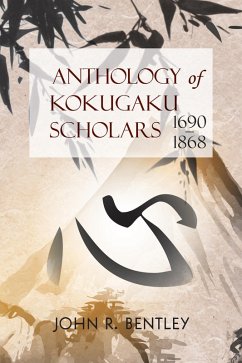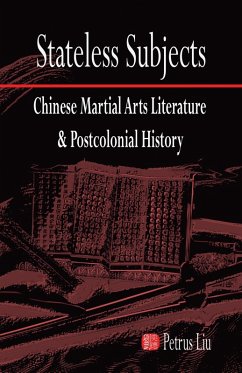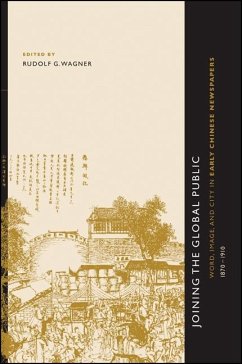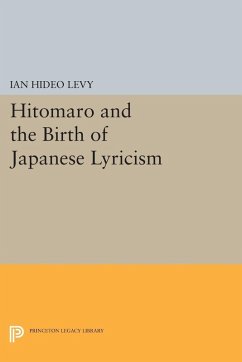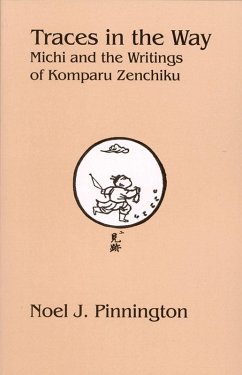
Traces in the Way (eBook, PDF)
Michi and the Writings of Komparu Zenchiku

PAYBACK Punkte
61 °P sammeln!
Traces in the Way is simultaneously a critical interpretation of the writings of noh playwright and thinker Komparu Zenchiku (1407-1470); a refutation of received views of Japanese traditional arts (michi); and an analysis of medieval Japanese uses of texts. The disciplinary approach is broadly that of cultural studies, combining close reading, social contextualization, and drawing on multiple fields. The study is organized through the five elements that Konishi Jin'ichi's identified as essential to michi: specialization, transmission, conformity, universality and authority. Each of these is e...
Traces in the Way is simultaneously a critical interpretation of the writings of noh playwright and thinker Komparu Zenchiku (1407-1470); a refutation of received views of Japanese traditional arts (michi); and an analysis of medieval Japanese uses of texts. The disciplinary approach is broadly that of cultural studies, combining close reading, social contextualization, and drawing on multiple fields. The study is organized through the five elements that Konishi Jin'ichi's identified as essential to michi: specialization, transmission, conformity, universality and authority. Each of these is examined critically and revised, providing a basis from which Zenchiku's works can be elucidated. This new approach makes it possible to solve much that in conventional studies has remained puzzling about Zenchiku's works including the principles behind the works of classification, the purposes that resulted in the rokurin ichiro works, and the ideology present in the fragmentary work: Meishukushu. It becomes clear that Zenchiku, far from being a docile recipient of his teacher Zeami's legacy, combined Zeami's texts with those of other michi to radically reposition his own practice in the cultural fields of his day. Zenchiku drew on a range of legitimating styles to fashion a new rationale for performance, one adequate to changing patronage requirements, and appropriate to the circumstances of his troupe. In this position-taking, Zenchiku was strikingly successful, as is witnessed by the survival of the Komparu line through the chaotic century after his death. With this book we come to know a good deal about sarugaku's transmission in the fifteenth century; enough to remedy a facile idealization of Japanese michi.
Dieser Download kann aus rechtlichen Gründen nur mit Rechnungsadresse in A, D ausgeliefert werden.





